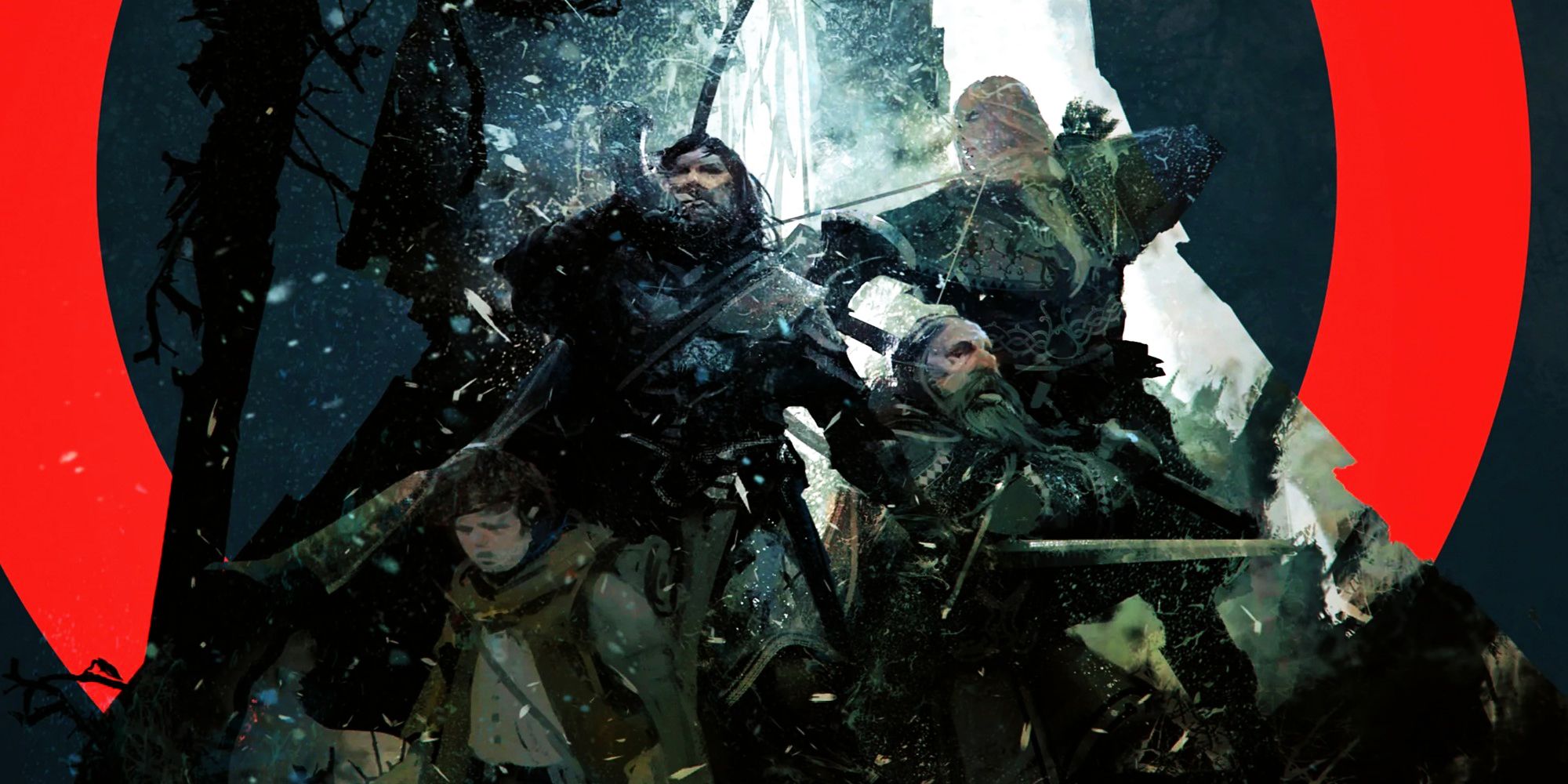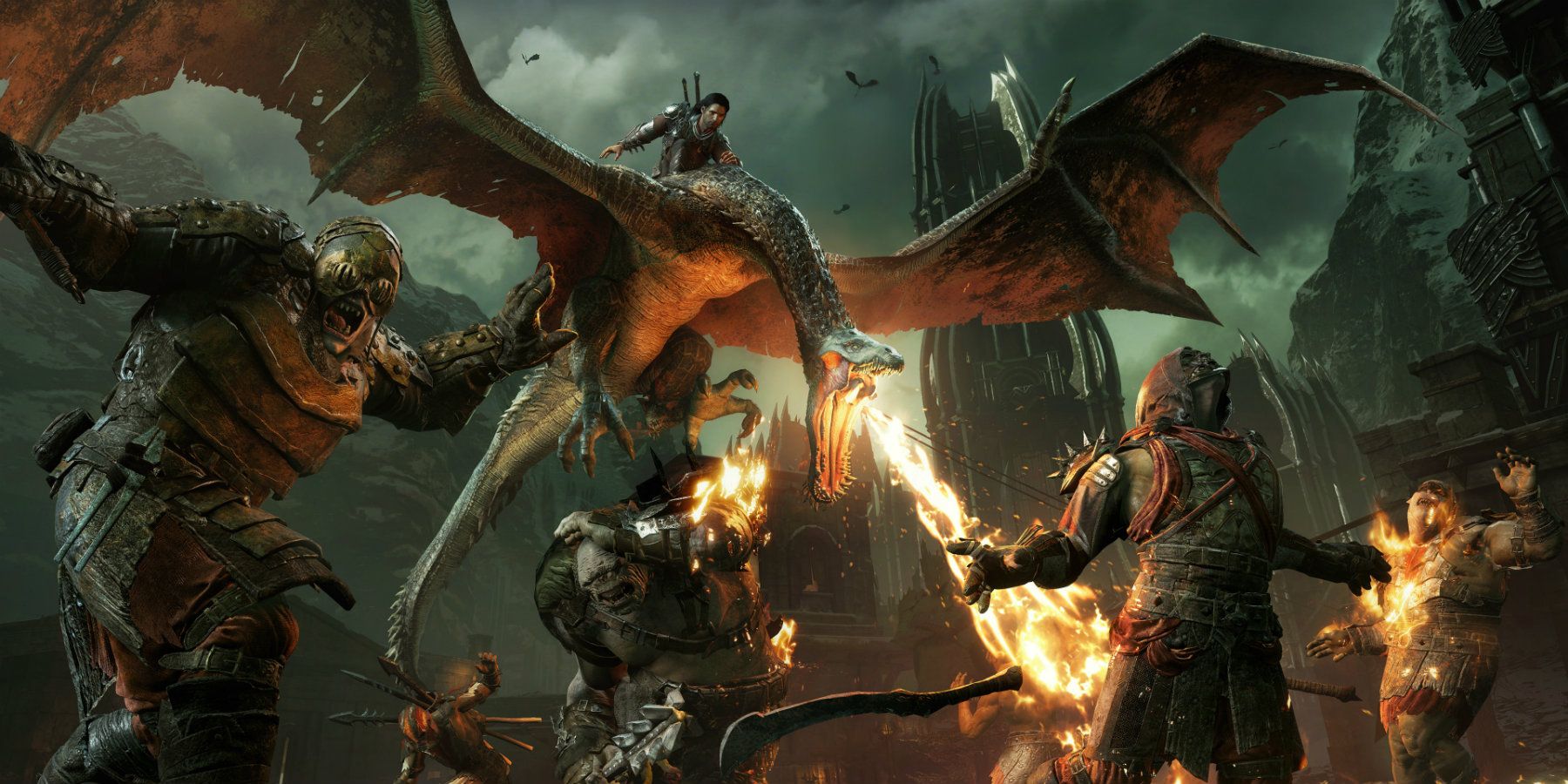Free League Publishing recently announced The Lord of the Rings Roleplaying, an adaptation of their original roleplaying game, The One Ring, using the 5th Edition rules of Dungeons & Dragons. Currently set to release early next year, the game will supposedly build off the foundations of Dungeons & Dragons with its own unique blend of mechanics and lore. If it can live up to its promise, The Lord of the Rings Roleplaying could end up drawing D&D fans and Tolkien fans alike into the broader space of LOTR roleplaying games, starting with its original system.
The One Ring LOTR RPG's 2nd edition was the subject of an extremely successful Kickstarter campaign in early 2021, and it was fully released in March of this year. That set of rules will be adapted to the mechanics of D&D 5th Edition, but it will hold the same premise: players assume the roles of adventurers in the year 2965 TA, which is between the events of The Hobbit and the Lord of the Rings trilogy. The critically acclaimed One Ring system has proven its mettle as a source of new stories in Middle-earth, and the popularity of D&D's 5th edition could be the perfect vehicle to bring those stories to more players.
There are many fundamental differences between The One Ring and D&D, which should make the former's adaptation an interesting process. For example, the most significant aspect of character creation in D&D 5th edition is a character's class, which determines much of their abilities, while The One Ring has no distinct classes. The Lord of the Rings Roleplaying reportedly features six new classes, though it's unclear whether they will replace D&D 5e's classes or be additions to its roster. In either case, introducing six original classes to the system could make for a radically different experience, offering surprises even for veteran players.
The Lord Of The Rings Roleplaying Brings Its Own Identity To D&D
The Lord of the Rings Roleplaying will also feature six "heroic cultures", which will presumably replace D&D 5e's official lineages. Since these cultures all hail from the region of Eriador, the game's primary setting, they will likely be more subtle variations of Middle-earth's inhabitants as opposed to the diverse variety of species that typically occupy D&D's classic and returning campaign settings. While some players might miss their favorite playable races, the fantasy of embarking on adventures in Middle-earth will only be bolstered by this adaptation's more limited scope.
Another potentially shocking difference between The Lord of the Rings Roleplaying and D&D 5e will reportedly be the implementation of magic. One of the major tenets expressed in the system's announcement was the "subtle magic of Middle-earth", a description that does not wholly align with the dozens of spells at players' fingertips in D&D. How thoroughly this adaptation will overhaul D&D's magic system remains to be seen, but magic fading from the spotlight would make sense given the more mundane focus of Free League's LOTR games. With the average adventurer in Middle-earth being far less likely to encounter magical phenomena than a party in D&D, prospective players shouldn't hold their breath. The game's announcement did, however, mention "wondrous artefacts" at play.
Even though concrete information on Free League's melding of LOTR with D&D is sparse at the moment, it is still clear that the final product will be substantially different from either of its parents. It may carry a similar narrative structure, flowing between journeys with downtime in between, but it appears to offer a substantive re-imagining of D&D's mechanics, design, and worldbuilding. Dungeons & Dragons players curious to branch out should find The Lord of the Rings Roleplaying to be a breath of fresh air, especially if they were already eager to step into the world of Tolkien.


